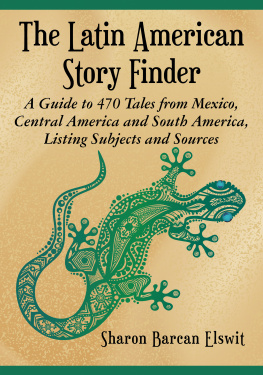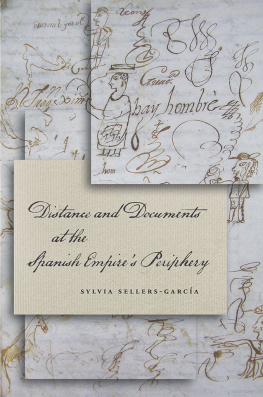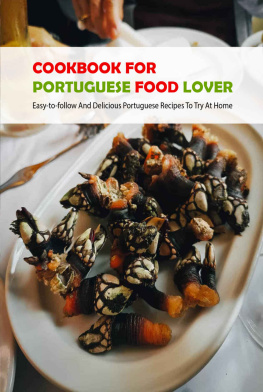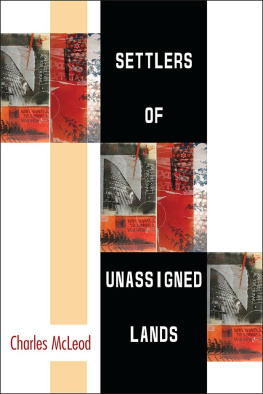PREFACE.
I firmly believe that the following tales have never seen the light of publicity. They are the folklore of Spain and Portugal.
Since the day when Hernando del Castillo, in 1511, published some of the romances of Spanish chivalry collected from the people, various works have appeared at different times, adding to the already rich store from that inexhaustible mine of song and story.
But, unfortunately for those who appreciate originality in a people, it was discovered that Boccaccio had been most unceremoniously plagiarized, and, what was still worse, that his defects had not been avoided.
The Decameron has, in fact, been the foundation of the majority of the romances attributed to the natives of the Peninsula when, as has too often been the case, they have in their songs of chivalry overstepped the limits imposed by decorum.
But this does not argue that the Spaniards and Portuguese have no poetry and no folklore of their own, but rather that the latter have been ignored by the compilers of such literature, in order to satisfy the cravings of the unfortunately too many admirers, even in this day, of that which would have been of advantage to the world at large had it never been imagined.
In England the tale of Jack the Giant Killer is read with avidity by all young people, for it is a purely national tale; but in Spain and Portugal such simple tales very seldom find a publisher, and children, and even their elders have to content themselves with hearing them recited by those who enliven the long wintry nights with such lore as I have attempted to reproduce from my memory, told me in my youth in the bosom of those two sister lands which produced the Cid Campeador and the Gran Vasco da Gama.
And, before closing this preface, I would remark that the North of Portugal, where I was born and bred, is richer in folklore than the rest of the kingdom, especially in tales about enchanted Moors and warlocks, of whom I, in common with the Portuguese, say, Abernuncio.
C. SELLERS.
THE INGENIOUS STUDENT.
T here was once a student in Tuy who was so very poor that, if faith in Providence be not reckoned, he possessed no riches.
But Juan Rivas was endowed with a wonderfully fine gift of ingenuity, and although he was somewhat behind in the payment for the Masses on behalf of his predecessors, and even more so with his mundane creditors, still was he a man who meant well and would do the right thing if he only had the opportunity.
To the man of the world there is no greater pleasure than to pay his debts, for by so doing he increases his credit.
Juan Rivas would willingly have paid every creditor had his pocket been as full of the wherewithal as his heart was of gratitude for small mercies; but there is no difficulty about showing ones self desirous of satisfying ones debtsthe only difficulty generally rests in being able to do so.
At college he had proved himself a good scholar and a true companion; but as he could no longer contribute toward the support of his college, his college could not be expected to support him.
His long black cap, his flowing robes, his pantaloons, and his shoes were altered in substance, and so was Juan Rivas.
Finally he became reduced to his last maravedi, and as his friends could no longer assist him, he thought it was high time he should assist himself.
Providence, said he, has never intended me for a poor man, but Fate has almost made me one. I will believe in Providence, and become rich from this day. Saying which, he went to some of his companions, who were almost as poor as he was, and asked them if they desired to be rich.
Do you ask us if we want to be rich with so serious a face? answered they. Really, friend Juan, you are so strange that you do not seem to belong to this city!
No man can be rich, continued Juan, by staying at home. We are students, and our studies should meet with some recompense. Will you do as I bid you?
Yes! cried all his poor companions; so long as you lead us not to the gallows, for we like not such playthings.
Well, then, follow me, said Juan; and when you see me release a prize that belongs to him who shall be bold enough to seize it, off with it to the market, and dispose of it at the best possible price.
Done, and agreed to, shouted all, if you will but seize the prize!
Leave that to me, said the poor student, and I will hand you a prize fully worth twenty dollars without his garments.
But, surely, you are not going to hand some man or woman over to us? inquired they.
Ask me no questions, as the Archbishop of Compostella said to the pretty widow, and I will be honest with you. The prize I shall hand you will fetch money in the market, and we sell not human beings in this country, urged Juan.
That is right, they exclaimed; and we will follow you.
The students followed Juan on to the high-road leading from the city to Ourense; and when they had walked for about two hours time Juan told his companions to get behind the hedge and await results.
Soon after, the jingling of bells was heard, and a muleteer seated cross-legged on a mule, which preceded five others, was seen approaching.
As the muleteer had sold all his wares he was indulging in a sleep, and had it not been for the dog-flies that teased the mules they would also have slept.
Juan let the muleteer pass; but as the last mule came up he seized it, and, taking off its trappings, and disencumbering it of its ponderous albarda, or saddle, he freed the animal on the roadside, and replaced the trappings and the saddle on himself.
His companions were not slow in seizing the prize and hurrying away with it, while Juan Rivas continued for some distance along the road, following in the train of mules.
As soon as he considered that his companions would be out of sight, he commenced backing with all his strength, which brought the mules to a sudden halt and caused their bells to tinkle.
The muleteer looked back to see if anything was wrong, but, perceiving nothing, bestowed a hearty blow on his mule, and on he went again.
The student now began to rear and jump about so that the muleteer pulled up, and, having dismounted, proceeded to inquire into the cause of the mule so misbehaving itself; but his astonishment was great when, instead of a mule, he saw a human being bearing the trappings and the saddle.
What merry freak is this, demanded the muleteer, addressing the student, that I see you replacing my mule?
It is no merry freak, indeed it is not, replied Juan Rivas, but a sad reality. You see before you, good master, a poor, miserable creature, who for his many offences against Mother Church was transformed into a mule, and sentenced to remain so for a number of years. My term of punishment has just expired, and I am restored to my natural form.
But where is my mule that cost me one hundred crowns not many years ago? asked the muleteer.









